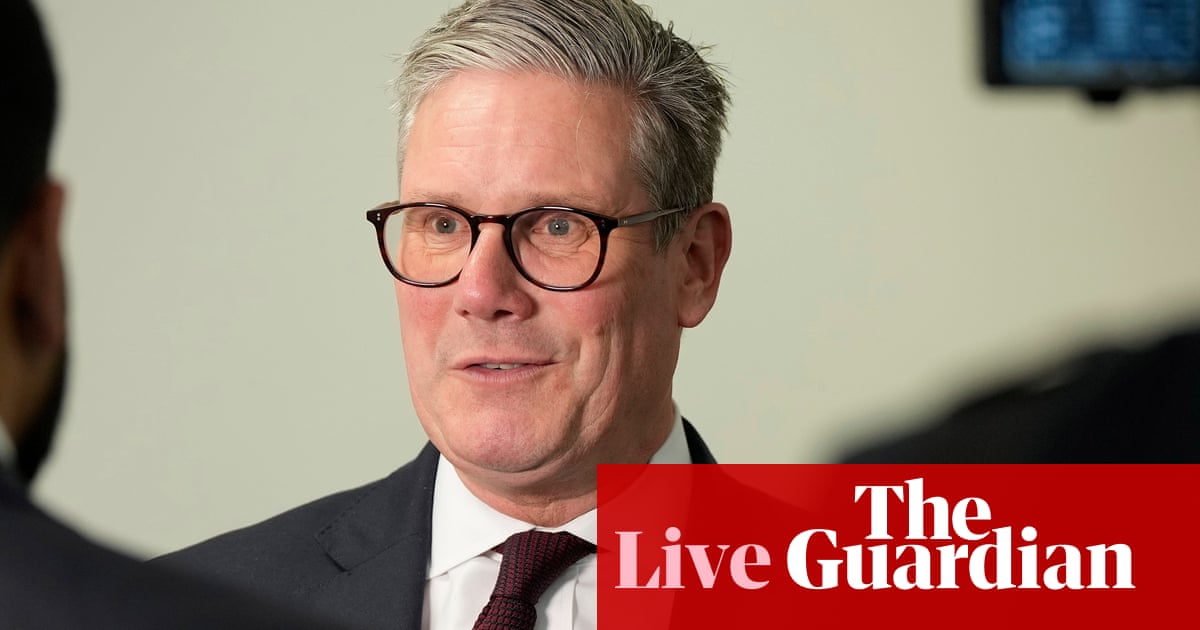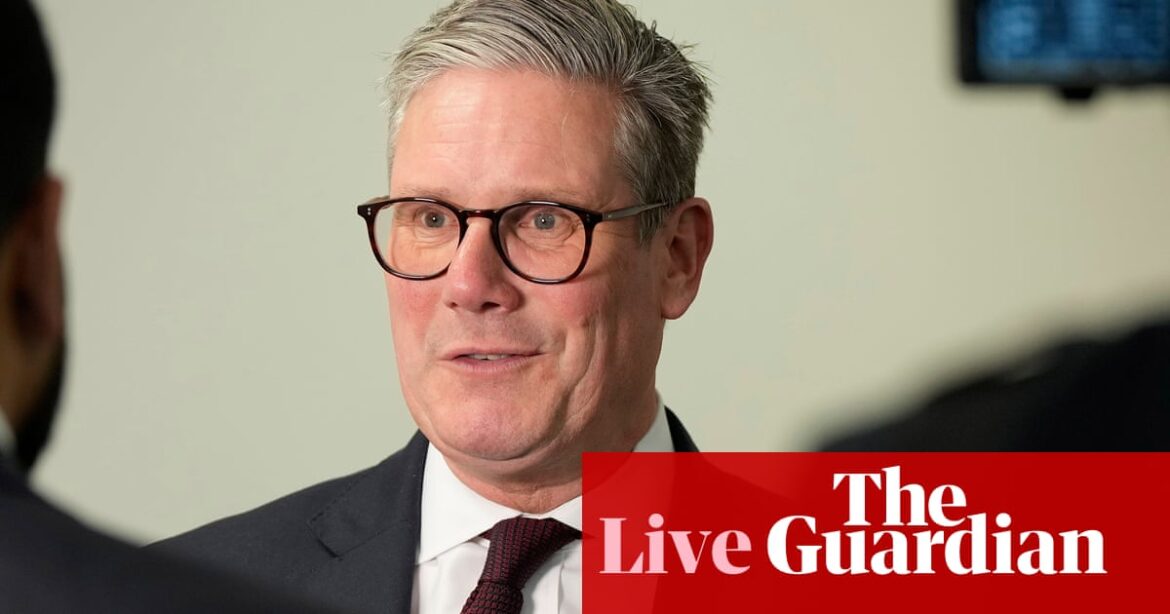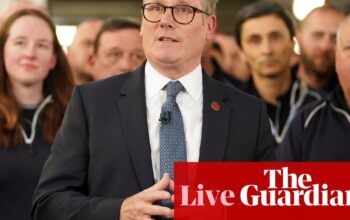
Labour, but Ben Houchen, the Conservative Tees Valley mayor (and the only Tory metro mayor left in England) was also present.
a paper saying that, without change to the way government operates, taxes would have to rise by 4.5 percentage points, as a share of GDP, by 2040. It says a 0.9 point rise is already baked in, another 1 point rise would be needed by the end of this parliament to avoid austerity, another 0.6 point rise would be needed by 2040 to compensate for the loss of fuel duty (as people switch to electric cars) and another 2 point rise would be needed by 2040 because of the ageing population.
But Blair says the government can avoid the need for this if it embraces the opportunities provided by technological change, and particularly artificial intelligence (AI). In his speech at the conference he will say:
Britain is facing an unenviable triple whammy of high taxes, heavy debt and poor outcomes. And worse is to come with the demographics of an aging population against us, deep structural health problems and rising numbers of long-term sick.
The simple and unavoidable truth is that unless we improve growth and productivity, and drive value and efficiency through our public spending, we’re going to become poorer. Much poorer.
This explains the mood of pessimism evident in much of the election campaign.
But I do not share the pessimism. On the contrary I don’t think there has ever been a better time to govern. A better time to effect change. A better basis for optimism and a surer reason for hope.
But only if we understand how the world is changing and how we use that change to change our country.
Stable government and some clear early wins can definitely help.
But there is only one game-changer. Harnessing effectively the 21st century technological revolution.
There is absolutely no doubt that this is an era of transformation. Things which were impossible will become possible; advances which would have taken decades, will happen in a few years or even months; the value we can add, the improvements in efficiency we can make, the radical benefits in outcomes we can secure, could be truly revolutionary.
Blair has also given an interview to the Guardian urging Keir Starmer to “close off the avenues” of the populist right by keeping tough controls on immigration.
Blair provides a good guide to some of the problems facing the government. But the country is expecting the new prime minister to provide the answers, not an old one, and today Keir Starmer will be in the Commons speaking for the first time from the Treasury bench in his new role. It won’t be a major political speech; that will come in the king’s speech debate a week tomorrow, because today MPs are just electing a speaker. But as we see Labour’s 412 MPs try to squeeze onto the government benches, and the 121 Tory MPs barely able to fill the space on the opposition benches, we will get a clear insight into just how dramatically the election result has reshaped the Commons.
Here is the agenda for the day.
9.15am: Metro mayors hold a meeting following their earlier meeting with Keir Starmer at No 10.
9.25am: Tony Blair gives a speech on “Governing in the age of AI” at the Future of Britain conference run by his Tony Blair Institute for Global Change thinktank. Other speakers included Wes Streeting, the health secretary, at 12pm, and William Hague, who is in conversation with Blair at 1.40pm.
9.30am: Keir Starmer chairs cabinet.
10.30am: Suella Braverman, the former home secretary, is among the speakers at the Popular Conservatism conference. Jacob Rees-Mogg and Lord Frost are aslo due to speak.
11.30am: Downing Street holds a lobby conference.
2.30pm: The Commons sits for the first time since the election to elect a speaker. Lindsay Hoyle is expected to be chosen again. There will be short speeches, including from Starmer and Rishi Sunak. Then MPs will start the process of swearing in.
Afternoon: Starmer flies to Washington for the Nato summit.
Also, Streeting is meeting the BMA junior doctors’ committee today.
If you want to contact me, please post a message below the line (BTL) or message me on X (Twitter). I can’t read all the messages BTL, but if you put “Andrew” in a message aimed at me, I am more likely to see it because I search for posts containing that word. If you want to flag something up urgently, it is best to use X; I’ll see something addressed to @AndrewSparrow very quickly. I find it very helpful when readers point out mistakes, even minor typos (no error is too small to correct). And I find your questions very interesting too. I can’t promise to reply to them all, but I will try to reply to as many as I can, either BTL or sometimes in the blog.
Source: theguardian.com



